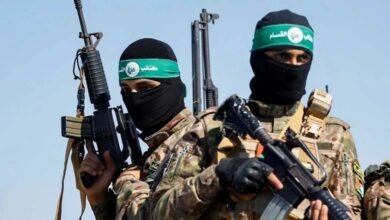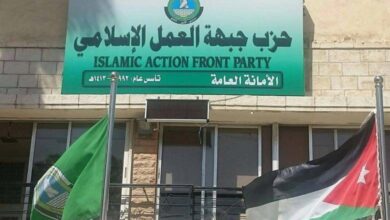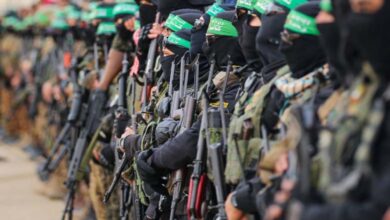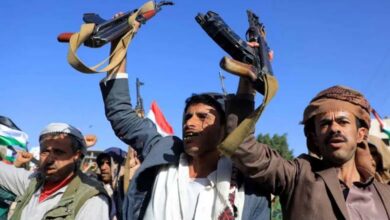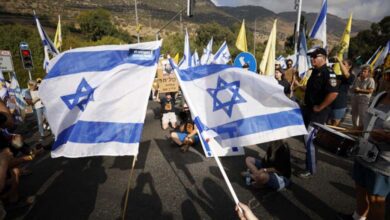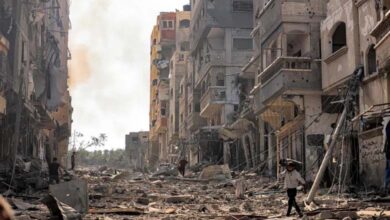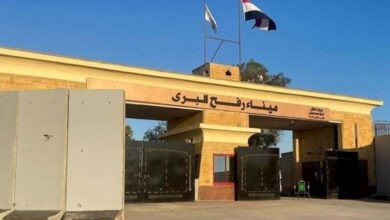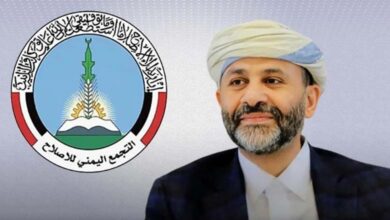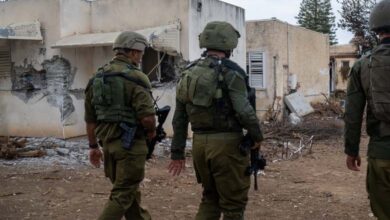Hamas Keeps New Leadership Secret Amid Assassination Fears
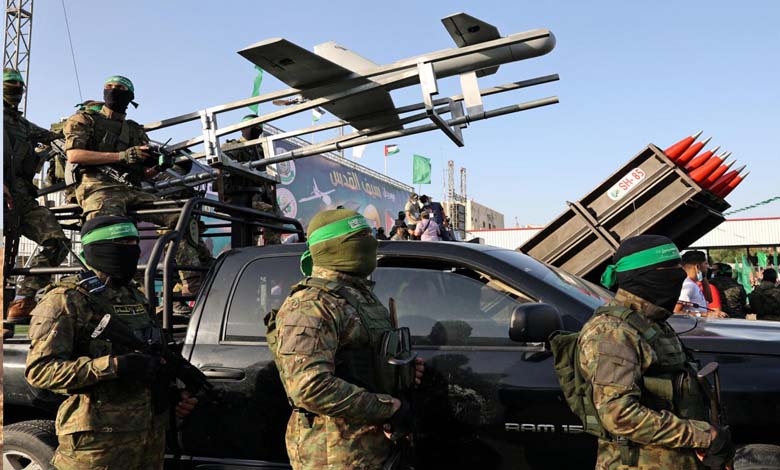
A senior al-Qassam figure says the movement has absorbed the blows, rebuilt its leadership, and is capable of carrying on.
Hamas has established a new leadership structure but has concealed the identities of its new leaders to protect them from targeted assassinations. This follows the killing of several Hamas leaders by Israel during the recent war, which has severely strained the movement, raising many questions about its future in the Gaza Strip amid growing criticism and protests over its crisis management.
-
Hamas Attempts to Suppress the Anti-Government Protests in Gaza
-
Qatar’s Funding of Hamas Sparks Political Controversy in Israel
Following Hamas’s unprecedented attack on Israel on October 7, 2023, the Israeli state vowed to eliminate the movement and launched a brutal assault on Gaza that, over 18 months, killed tens of thousands, weakened Hamas, and reduced vast parts of the Palestinian territory to rubble.
Israel killed senior Hamas figures, including Ismail Haniyeh, head of the political bureau; Mohammed Deif, the military commander; and Yahya Sinwar, the mastermind behind the October 7 attack, along with many other leaders.
Despite this, the movement continues its military and political activities but remains secretive about its top leaders’ identities—especially those in the Ezzedine al-Qassam Brigades, the military wing of Hamas.
-
Israeli failure to repel Hamas attack sparks new crisis
-
Fatah Calls on Hamas to Leave the Government Scene: Have Mercy on Gaza and Its Children
A source close to al-Qassam stated: “The name of the Qassam Brigades’ commander will remain secret.”
Researchers believe the role has likely been assigned to Mohammed Sinwar, younger brother of Yahya Sinwar, who was entrusted by Hamas with overseeing the hostages taken into Gaza during the attack on Israel.
Independent analyst Eva Koulouriotis says Mohammed Sinwar “has a say in everything, including negotiations, the Israeli hostages issue, and managing the military wing.”
Laetitia Bucaille, professor of political sociology at INALCO in Paris, notes that “Yahya Sinwar was a unique figure,” seen as a hero by fighters. She adds: “The fact that Mohammed is his brother gives him an aura of legitimacy.”
-
Gaza War: Hamas Says It Has Not “Closed” the Door to Negotiations
-
Military pressures push Hamas to maintain negotiation options
Despite Israel’s pledge to destroy Hamas and the heavy losses it has suffered, the movement still exists, continues to fight, and negotiates. Yasser Abu Hine, founder of Safa news agency in Gaza, says the loss of so many leaders impacted Hamas, “but only temporarily.”
“These strikes are not an existential crisis. Hamas has its own methods of managing its institutions. Israel won’t be able to eliminate it,” he said.
A Hamas political bureau member confirmed, “Hamas has absorbed the blows, restructured its leadership, and has the ability to continue.”
-
Hamas Responds to New Proposal and Agrees to Release an Israeli-American Hostage
-
One Year After October 7: What Has Changed in Israel?
Following Sinwar’s death, Hamas formed a five-member leadership council headed by Mohammed Darwish, the head of the movement’s general Shura Council. The council includes Khalil al-Hayya (Gaza chief), Zaher Jabarin (West Bank chief), Khaled Meshaal (foreign chief), and Nizar Awadallah (movement secretary).
The leader added that new political bureau appointments are “made by the Shura Council according to internal regulations. The next candidate in terms of votes from the last elections replaces the slain member or official.”
Decisions are made “by majority vote,” and political bureau meetings are held as needed. Mechanisms have been established for communication and coordination among leadership bodies. “The working mechanism is complex, combining secrecy and openness,” he said. Observers liken Hamas’s internal structure to that of intelligence services.
-
How did Hezbollah betray Hamas after its involvement in the October 7th attack?
-
New information about the October 7 attack
Leila Sourah, a researcher at the Arab Center for Research and Policy Studies in Paris, stated, “We will not know who the new leaders are. There’s a deliberate intent to keep names secret and maintain collective leadership.” She added, “This is not a movement built around one charismatic leader.”
Expert Yasser Abu Hine noted that Hamas has previously faced existential threats, recalling the assassination of Hamas’s spiritual founder Sheikh Ahmed Yassin in 2004 and most of the top leadership. “The movement overcame that crisis,” he said.
He acknowledged that the current war has heavily damaged Hamas’s military and organizational structure, but added, “The new leaders are even more determined and radical in pursuing the path of liberation.”
-
Was America aware of the October 7th attack? What’s the story behind the ‘Jericho Wall’ document?
-
Palestinian released prisoners: This is what happened to detainees in Israeli prisons after October 7th
Still, for the first time since it took over Gaza in 2007, Hamas is facing serious questions about its ability to continue governing the enclave.
Israel adamantly opposes any role for Hamas post-war. A clear Arab consensus—also backed by some European states—has emerged calling for the Palestinian Authority to take over Gaza’s governance.
In early March, a Soufan Center report from New York noted that “internal debates have become so intense that some political leaders are considering splitting from the movement’s military leadership in Gaza.”
-
“Intelligence Failures”: Can Israel Restore Its Security Prestige After the October Attack?
-
Hamas Preempts Witkoff’s Participation in Doha Negotiations by Reinforcing Its Positions
Hamas official Mousa Abu Marzouk told The New York Times that if the group had known “what would happen, there would have been no October 7.”
Sourah noted that internal divisions have often plagued Hamas over the past fifteen years—particularly between its Gaza-based and exiled factions—regarding strategic vision, the Arab Spring, and alliances with Iran.
In recent weeks, many Gaza residents have publicly expressed strong discontent with Hamas, blaming it for a war that reduced the territory to dust and ruins.
At the end of March, hundreds of people took part in rare, seemingly spontaneous protests against Hamas, chanting slogans such as “Hamas out!” and “Hamas is a terrorist organization.”


